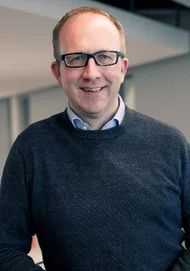




The rewards and challenges for physicians working in the Northern Territory
Physicians working in the Northern Territory often face numerous challenges, such as medical staff shortages, access to remote communities, and illnesses and ailments rarely seen in cosmopolitan Australia. However, despite these challenges, it can also be a highly rewarding and unique career.
A range of physicians in the Northern Territory have shared the personal and professional challenges and rewards they have encountered working in one of the most unique parts of Australia – and indeed, the world.
“Medicine in the Northern Territory is like no other,” says Dr Dorothy Sze, a basic physician trainee.
The challenges of working in the Northern Territory are plentiful. Local physicians encounter obstacles to jump over at almost every turn, from the great breadth of illnesses and diseases, through to poor road access, language and cultural barriers, and acknowledgment of the shortfall in medical support within the area.
Physicians in the Northern Territory have put a call out to other physicians – from trainees to experienced Fellows – to offer generalist medicine support in Australia’s most rural and remote areas.
Here are some of the reasons why our members got involved in the Northern Territory, and how facing these challenges has brought great benefits and rewards to them, their colleagues, and the communities they serve.
“On my first day as a basic physician trainee at Royal Darwin Hospital I remember having to manage a patient with a rare medication adverse event, and then another patient with a neurological syndrome that I had never heard of. And it only got better from there,” Dr Sze recalled.
“Every day, I am directly involved in a whole spectrum of acute and chronic conditions, many of which I only previously encountered in textbooks. Our Indigenous patients present unique cultural and social intricacies to practicing medicine; an experience that cannot be acquired anywhere else in Australia,” she said.
The distinctive experience of being presented with hugely varied illnesses, and learning to manage practical and social practices, is something echoed by other physicians working in the Northern Territory.
Professor Martin Veysey concurred, “We still have rheumatic heart disease, and we still have syphilis and scabies – they are endemic. We see people in their thirties and forties with severe heart failure and significant diabetes and disease, which I didn’t see when I worked on the Central Coast … That’s aside from the fascinating infectious diseases you find here [for example] melioidosis … It’s tropical medicine. It’s a different range of diseases.”
The variety of illnesses in the Northern Territory offers physicians at all levels a platform to significantly diversify their skillset. Further, they can embrace the knowledge that every day will be different from the last, exciting and full of unknowns.
But their assistance also demonstrates a necessary commitment to patients who represent a very underserved population within Australia.
“A physician in Darwin not only has the challenge of complex caregiving of the sick, but also the never-ending struggle to improve health care delivery for the marginalized patients that live here,” said Dr David Carroll, a basic physician trainee who has spent four years working in Darwin. Compared with colleagues across other Australian states and territories, physicians in the Northern Territory have an unparalleled ability to make a noticeable difference to the health outcomes of their patients. Furthermore, they can achieve this with an unrivalled amount of autonomy.
The necessitated tailored approach to healthcare within the region often requires physicians to pursue a direct involvement with local health systems. As a result, many physicians may find themselves considering how these health systems could be improved upon, and then having the coveted opportunity to implement changes.
“Living in Darwin, I have had opportunities to improve systems and add to my training by working in roles beyond direct care of the patient in front of me. I worked in partnership with other trainees on policy implementation, on communication in healthcare, as well as having current roles in safety and quality committees in the hospital and the NT Department of Health. This work allows me to link direct clinical care to pragmatic actions in solidarity with the sick,” said Dr Carroll.
The direct involvement with hospitals, policy and the local government provides a tremendous learning opportunity for physicians. However, it highlights the need for a different model of care and delivery to be used in the Northern Territory, with greater support from medical professionals to help devise it.
“We have a very doctor-centric healthcare model of delivery where everyone must visit the doctor to get care. But there are only about 250,000 people living in the Northern Territory, so while they are spread over a vast area, it’s not a big population. So, it should, in theory, be possible to deliver care and build relationships with people in their homes, rather than in the hospital,” Professor Veysey said.
“If we build relationships with patients, it helps when someone needs to come to Darwin for an endoscopy or a scan because they already know me. I’ve met them on the land, and they have a connection with me. Then when I say I need them to come to my place for a test or a scan, they understand that I’m ‘Dr Martin’ — we already have a relationship.”
Dr Carroll agrees about the need for a patient-centred approach and adapting the systems around making that possible. “Whether you work in the NT or further afield, our primary allegiance is to patients. I hope we can work to reimagine the practice of medicine and work toward treating the systems that surround patients, and not just the diseases they have, by dismantling the pathologies of power that surround us.”
In order to facilitate the reimagining of medical practices, it is important to understand where the issues lie and how they might be solved.
“The real challenge in Australia is how we close the health gap with our Aboriginal colleagues and neighbours. That’s probably the most striking thing up here. Here, about 70 per cent of our hospital population is Aboriginal, and one-third of the whole population of the Northern Territory is Aboriginal, so you’re dealing with medicine in a very underserved population,” Professor Veysey said.
This presents another set of unique challenges when working with a diversity of Aboriginal languages, clans and cultures. Professor Veysey has found it helpful to speak a few words in a variety of languages or to engage with Aboriginal Liaison Officers to translate for patients to ensure they understand what is going on. He gains joy from using this knowledge and creating connections with people all over the Northern Territory – many of whom are in some of the most remote and hard-to-reach parts of Australia.
“One of the best things is that I get to go to Nhulunbuy, to East Arnhem, to the Gove Peninsula … and do clinics and endoscopies there once every two or three months. From East Arnhem, I go to Katherine to do clinics down there. It’s a flight from East Arnhem because in the rainy season there are no roads open, or it’s a three-hour drive from Darwin. I fly to Alice Springs, which is a two-hour flight, once a month to do endoscopies in a clinic down there, but most of the time I’m based in Darwin.”
But while the number of cultural, societal, linguistic, educational and logistical challenges can be mammoth, Professor Veysey counters these with the idea that most doctors enjoy the challenges these bring.
The sheer variety within the role of a physician is one that particularly appeals to Professor Veysey. Although he is a specialist, in the Northern Territory he can don many hats.
“There is a need for specialists, but there is a greater need for specialists who are also willing to be generalists. Due to the healthcare structures we have here, we have true general medicine,” Professor Veysey said.
“You go into the profession wanting to be challenged and to set challenges for yourself and to try and deliver better healthcare for patients. We get enjoyment from our awards for achieving that. It’s frustrating at times, as sometimes it is about money or bureaucracy, or things you can’t change. But the difference is that you always have something going well. When you’re seeing the same thing all day, every day and it’s not going right it’s devastating, but if you’ve got a variety of things which are happening, it’s unlikely that they’re all going badly,” said Professor Veysey.
Dr Sze concurred, “You will notice that while everyone working in NT has a different reason to be here, people are generally open and chilled. They often bring with them a wealth of clinical and life experiences too. I have learnt a great deal about fishing, sewing and international food from my colleagues. And after a fulfilling day at work, there is just something magical about watching the sun go down over the Timor Sea.
“The Northern Territory is rural, but it is a very underrated part of this country. For anyone willing to take a leap of faith, I promise it’ll be an experience you will never forget. You will probably also never forget that 15-syllable name of the bacteria your patient grew in his blood culture,” Dr Sze said.
“I want to be a doctor who makes a difference in people’s lives,” Professor Martin Veysey said, and that is certainly something that can be achieved when working in the Northern Territory.
Professor Veysey concluded, “Don’t be afraid of it and don’t be afraid of being in a remote place. What you’ll find is that it will be challenging, but you have the opportunity to truly shape and be involved in developing the services delivered here … We need more clinicians up here!”
If you are interested in exploring opportunities for locum or longer-term work in the Northern Territory, and building relationships with patients in a hands-on environment, please contact RACPNT@racp.edu.au to find out more.

